“Settling” constitutes a warcime according to international law and ICC statute. Even under US’ own military legislations’
Law resources below this article
Middle East Monitor | July 31, 2013
Follow @MiddleEastMnt
![PNGO-LOGO[1]](https://occupiedpalestine.files.wordpress.com/2013/07/pngo-logo1.jpg?w=588)
The Network believes that the decision to resume negotiations has come at a difficult time for the Palestinians
The group of 133 Palestinian NGOs in Jerusalem, the West Bank and the Gaza Strip said in a press statement on Wednesday that the danger of negotiations lies in them being held without any commitment to the required base reference points, which are supposed to be the minimum requirements for their resumption.
These include the June 1967 borders, a freeze on settlement activity and releasing Palestinian prisoners. “It is also dangerous to use the negotiations to stop the Palestinians joining international organisations, including the International Criminal Court following Palestine’s membership as an observer state in the United Nations,” said the Network.
Furthermore, the organisation pointed out that at a time when the struggle is intensifying on various levels towards strengthening the boycott campaign, which has started to yield results, “the negotiations will lead an end to this by convincing the world- wrongly that there is a political process in progress.” Despite the agreement to resume negotiations, noted the Network, it is clear to everyone that the Israeli occupation continues to build settlement units, expand settlements, seize land and Judaise Jerusalem despite.
“The occupation is working to impose new facts on the ground and establish a system of enclaves and Bantustans, and the negotiations act as a cover for Israel’s expansionist and racist policies in a blatant exploitation of the so-called political process, in order to dispel the goals of the national Palestinian struggle.”
The NGO group believes that the decision to resume negotiations has come at a difficult time for the Palestinians in terms of the continued national division, and under unfavourable conditions with the Arab states, as each is preoccupied with addressing internal affairs. “Thus, the negotiations are being held in the absence of a cohesive Palestinian and Arab foundation that should act as an element of support for any political process”.
Related in Media
- July 30, 2013 | 133 Palestinian NGOs reject PA’s decision to restart talks with Israel – PIC
![]()
LAW
“States may not deport or transfer parts of their own civilian population into a territory they occupy.”
Summary
State practice establishes this rule as a norm of customary international law applicable in international armed conflicts.
International armed conflicts
The prohibition on deporting or transferring parts of a State’s own civilian population into the territory it occupies is set forth in the Fourth Geneva Convention.[1]
It is a grave breach of Additional Protocol I.[2]
Under the Statute of the International Criminal Court, “the transfer, directly or indirectly, by the Occupying Power of parts of its own civilian population into the territory it occupies” constitutes a war crime in international armed conflicts.[3]
Many military manuals prohibit the deportation or transfer by a party to the conflict of parts of its civilian population into the territory it occupies.[4]
This rule is included in the legislation of numerous States.[5]
Official statements and reported practice also support the prohibition on transferring one’s own civilian population into occupied territory.[6]
Attempts to alter the demographic composition of an occupied territory have been condemned by the UN Security Council.[7]
In 1992, it called for the cessation of attempts to change the ethnic composition of the population, anywhere in the former Yugoslavia.[8]
Similarly, the UN General Assembly and UN Commission on Human Rights have condemned settlement practices.[9]
According to the final report of the UN Special Rapporteur on the Human Rights Dimensions of Population Transfer, including the Implantation of Settlers and Settlements, “the implantation of settlers” is unlawful and engages State responsibility and the criminal responsibility of individuals.[10]
In 1981, the 24th International Conference of the Red Cross reaffirmed that “settlements in occupied territory are incompatible with article 27 and 49 of the Fourth Geneva Convention”.[11]
In the Case of the Major War Criminals in 1946, the International Military Tribunal at Nuremberg found two of the accused guilty of attempting the “Germanization” of occupied territories.[12]
References
[1] Fourth Geneva Convention, Article 49, sixth paragraph (cited in Vol. II, Ch. 38, § 334).
[2] Additional Protocol I, Article 85(4)(a) (adopted by consensus) (ibid., § 335).
[3] ICC Statute, Article 8(2)(b)(viii) (ibid., § 336).
[4] See, e.g., the military manuals of Argentina (ibid., §§ 346–347), Australia (ibid., § 348), Canada (ibid., § 349), Croatia (ibid., § 350), Hungary (ibid., § 351), Italy (ibid., § 352), Netherlands (ibid., § 353), New Zealand (ibid., § 354), Spain (ibid., § 355), Sweden (ibid., § 357), Switzerland (ibid., § 357), United Kingdom (ibid., § 358) and United States (ibid., § 359).
[5] See, e.g., the legislation of Armenia (ibid., § 361), Australia (ibid., §§ 362–363), Azerbaijan (ibid., §§ 364–365), Bangladesh (ibid., § 366), Belarus (ibid., § 367), Belgium (ibid., § 368), Bosnia and Herzegovina (ibid., § 369), Canada (ibid., §§ 371–372), Congo (ibid., § 373), Cook Islands (ibid., § 374), Croatia (ibid., § 375), Cyprus (ibid., § 376), Czech Republic (ibid., § 377), Germany (ibid., § 379), Georgia (ibid., § 380), Ireland (ibid., § 381), Mali (ibid., § 384), Republic of Moldova (ibid., § 385), Netherlands (ibid., § 386), New Zealand (ibid., §§ 387–388), Niger (ibid., § 390), Norway (ibid., § 391), Slovakia (ibid., § 392), Slovenia (ibid., § 393), Spain (ibid., § 394), Tajikistan (ibid., § 395), United Kingdom (ibid., §§ 397–398), Yugoslavia (ibid., § 399) and Zimbabwe (ibid., § 400); see also the draft legislation of Argentina (ibid., § 360), Burundi (ibid., § 370), Jordan (ibid., § 382), Lebanon (ibid., § 383) and Trinidad and Tobago (ibid., § 396).
[6] See, e.g., the statements of Kuwait (ibid., § 405) and United States (ibid., §§ 406–407) and the reported practice of Egypt (ibid., § 402) and France (ibid., § 403).
[7] See, e.g., UN Security Council, Res. 446 , 452 and 476 (ibid., § 408), Res. 465 (ibid., § 409) and Res. 677 (ibid., § 410).
[8] UN Security Council, Res. 752 (ibid., § 411).
[9] See, e.g., UN General Assembly, Res. 36/147 C, 37/88 C, 38/79 D, 39/95 D and 40/161 D (ibid., § 412) and Res. 54/78 (ibid., § 405); UN Commission on Human Rights, Res. 2001/7 (ibid., § 413).
[10] UN Sub-Commission on Human Rights, Final report of the Special Rapporteur on the Human Rights Dimensions of Population Transfer, including the Implantation of Settlers and Settlements (ibid., § 415).
[11] 24th International Conference of the Red Cross, Res. III (ibid., § 419).
[12] International Military Tribunal at Nuremberg, Case of the Major War Criminals, Judgement (ibid., § 421).

 July 31, 2013
July 31, 2013 
 Still live in fairy-tale-land about Israel? Time to wake up: The Map of the “Greater Israel” even is hammered on the currency:All facts at Storify continuously updated. Read what Israeli ‘leaders’ have said and done even before (peace) talks and how their actions contradict the reality and ugly facts which they try to hide from you:
Still live in fairy-tale-land about Israel? Time to wake up: The Map of the “Greater Israel” even is hammered on the currency:All facts at Storify continuously updated. Read what Israeli ‘leaders’ have said and done even before (peace) talks and how their actions contradict the reality and ugly facts which they try to hide from you:




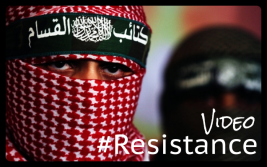

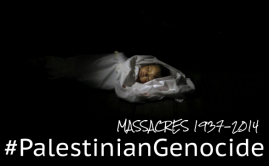





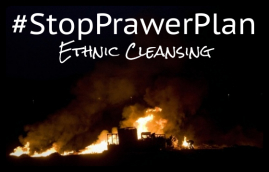











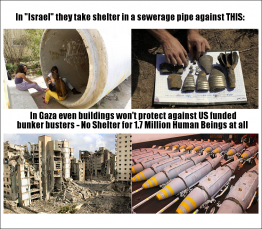





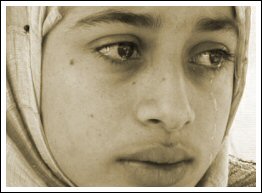
Comments are closed.